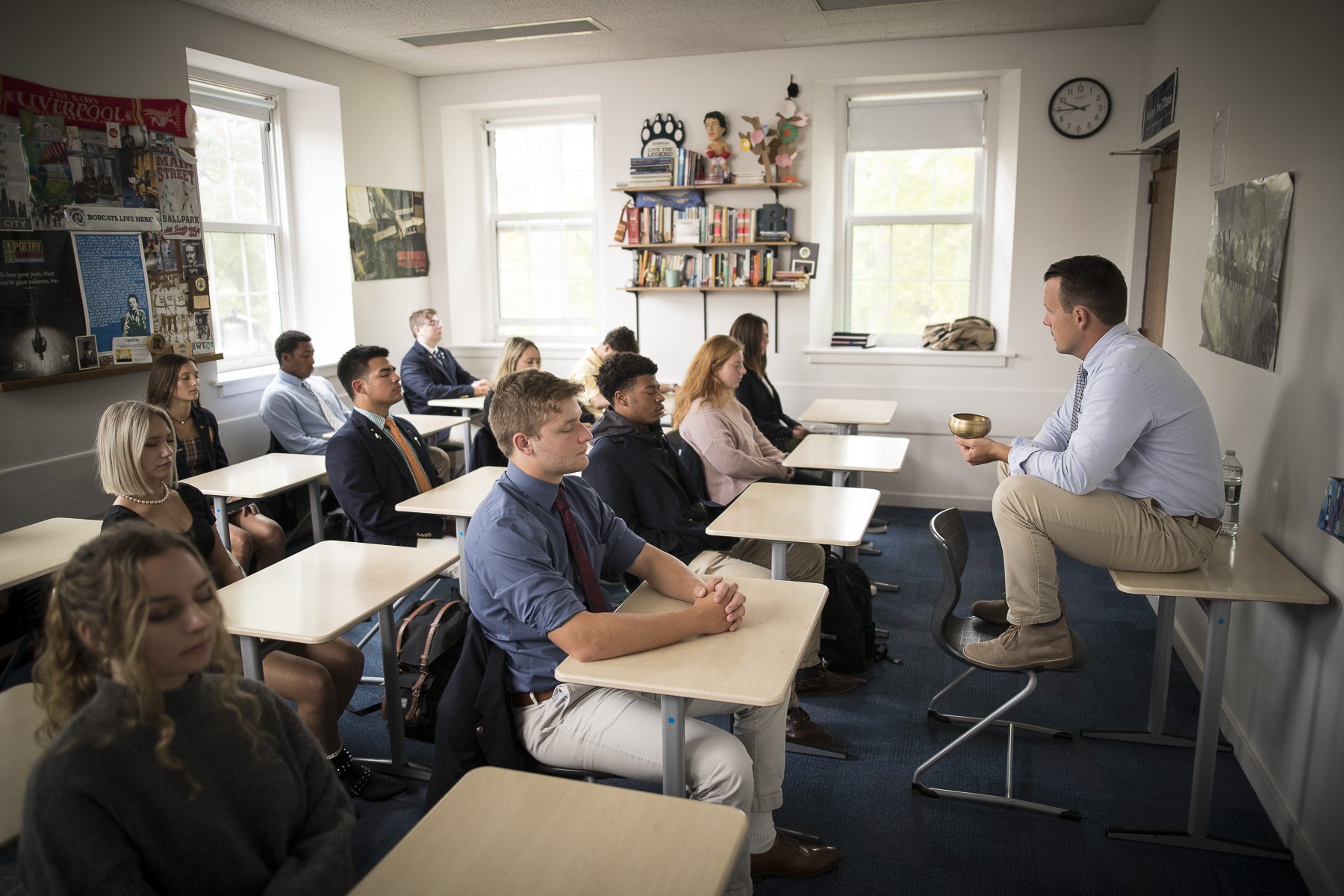Let’s Just Be Friends: Reflections from a Now-Former Teacher.
Wisdom is not communicable. The wisdom which a wise man tries to communicate always sounds foolish. Knowledge can be communicated, but not wisdom. One can find it, live it, be fortified by it, do wonders though it, but one cannot communicate and teach it.
– Hermann Hesse
For thirteen years, whenever people asked me, “What do you do?” I answered, “I’m a teacher,” because it was true-ish, and because that’s what it said on my taxes.
That question, though – What do you do? – is rather odd, when examined: say you’re at a cocktail party, you meet a friend of a friend, and since you’re not a total neanderthal, you start making innocuous small talk, which will lead almost immediately to you – a well-adjusted adult raised with a basic sense of manners – to ask this person – who, for all intents and purposes, is a total stranger – a question that roughly translates to, “So…how do you pay for things?”
It’s a disgusting lack of any social grace, if you think about it, and if you don’t yet agree, the next time you’re chatting with a friendly so-and-so at the grocery store, just ask them, “So, how is it that you can afford food for your family today?” Then, enjoy the sight of them storming off.
Of course, What do you do? is so commonplace that it’s only when translated that we can come to understand how truly peculiar it is, and moreover, that hiding in plain sight is a rather sad fact of a pervasive societal idea: that people’s identity is inherent to their job.
Time-wise, though, “What do you do?” makes sense: roughly one-third of people’s lives are spent at work, so occupation is, in fact, a huge portion of what a human being actually does while they’re on this planet. Another third of our time is spent sleeping, and that’s an even less interesting topic, so just using quick math, most people only have about 33% of their lives left for all the other stuff they like…once they’re done cooking, cleaning, mowing the lawn, raking the leaves, clearing the garage, weeding the garden, and shuttling their offspring to soccer practice, of course.
But “What do you do?” is particularly ridiculous because we know that accountants don’t go home to pour over their leisure time spreadsheets, landscapers aren’t eager for yard work when they’re off the clock, and dentists never, ever floss.
As a teacher, this was most pronounced when I’d see a student outside of the confines of the classroom, which is a level of cognitive dissonance that has the potential to short circuit the adolescent brain: a once-bold teenager during the week would tuck to their parent’s hip like a shy toddler, their skin crawling with a hot, unrelenting discomfort they’d previously not thought possible, and they’d give a look like, “What are you doing here? What could you possibly need from Costco?”
(Um, everything, little homie.)
Those in glass houses shouldn’t throw stones, however, and I’ll admit that I’m as guilty as anyone of the now-maligned What do you do? It’s just that, despite the fact that I taught as a career, I never thought of myself as a teacher, especially during the huge swaths of time when I wasn’t standing in front of a class. As I often explained to my students, this – like most everything in life – was just a role I played, and on my off hours, I wasn’t hanging out with friends, curating conversations like, “Great point, Matt, but I’m going to cut you off there because it looked like Megan had something to say, and I want to make sure we hear from her on this topic.”
There was also other stuff – music, writing, basketball, travel, nature, friends, family, guitar, being super good at bar trivia, and later, yoga and meditation – that felt as or more true to who I was than teaching did, which is not to say that teaching wasn’t a part of the story. Of course it was – just not the beginning, middle, and end.
This year, I left my full-time role in the classroom, but I still work as an adjunct and a yoga and meditation teacher. Recently, however, I came across something that put into words a suspicion I’d long had, but never quite wrangled the language for.
In an article by Shozan Jack Haubner, I read that the great Tibetan lama and meditation master Chögyam Trungpa Rinpoche once said “Rather than look for a teacher, one should look for a spiritual friend.”
A “spiritual friend” is simply “someone to be with when you practice,” because, as Haubner, puts it, “No one can teach you how to experience a sunset or fall in love. And no one can teach you how to meditate. You have to do it. The breath will show you the way.”
And there it is: no teachers, just friends.
(…which I’m just now realizing may be bad for business.)
In the context of yoga, this point is self-evident: people constantly make discoveries on their mats, which more than the heat and the planks and the burned calories, is why, in my opinion, they keep coming back.
They gain something ancient and wordless, they figure out parts of themselves, parts of their lives, parts of the world around them that they haven’t been able to fully grasp in other arenas or forms of movement.
Ultimately, though, the discoveries made are entirely on the practitioner’s own.
The person at the front of the room keeping time, cueing poses, and guiding the sequence can’t make anyone get it. They can’t make anyone let go, or find balance, or lean into that spacious feeling that yoga often brings about. Those things can and will only arise within the confines of the student: it’s internal, independent of outside coercion, an innate wisdom that’s always been there, but which only begins to show itself when the time and conditions are right.
The teacher offers knowledge, but the student discovers wisdom, which are two very different things, and despite the fact that someone is “leading” a class, one cannot be taken to the good stuff by another’s hand.
There was an unconscious feeling that this was true early in my classroom days, and the more I came to practice yoga and meditation, the more evident it became: I could share dates, geography, definitions, and facts, but whatever concepts were really worth understanding – the ones that could alter or inform their perspective of themselves and the world – had to click within the individual, on their own. There simply isn’t another way.
And because of that, today, the way I think about being a “teacher” is more like bumpers on a bowling alley: my job is to set people roughly in the right direction and try to keep them out of the gutter, but whatever pins they hit, they hit on their own.
I can let people know what not to do and offer suggestions based on what’s worked for me, which all any of us have control over, anyways. The rest is on their own.
Like the host who’s invited you over for a party, the “teacher” just sets the conditions for a good time to be had: the place is clean, the lighting is right, the music is good, and whatever they have to offer that day is yours for the taking.
As Ram Dass said, “I can do nothing for you but work on myself; you can do nothing for me but work on yourself.” Of course, that work is a lot more fun when we do it together, so let’s not be student and teacher.
Let’s be spiritual friends.
You wouldn’t want me as a teacher, anyways: I don’t know much, except on the off chance that I’m a few steps ahead on the path, I still don’t have the map of where it’s all going.
So between pals, a quick question: does anyone have a good accountant? I need to know if I can list “spiritual friend” on my W2 this year.


